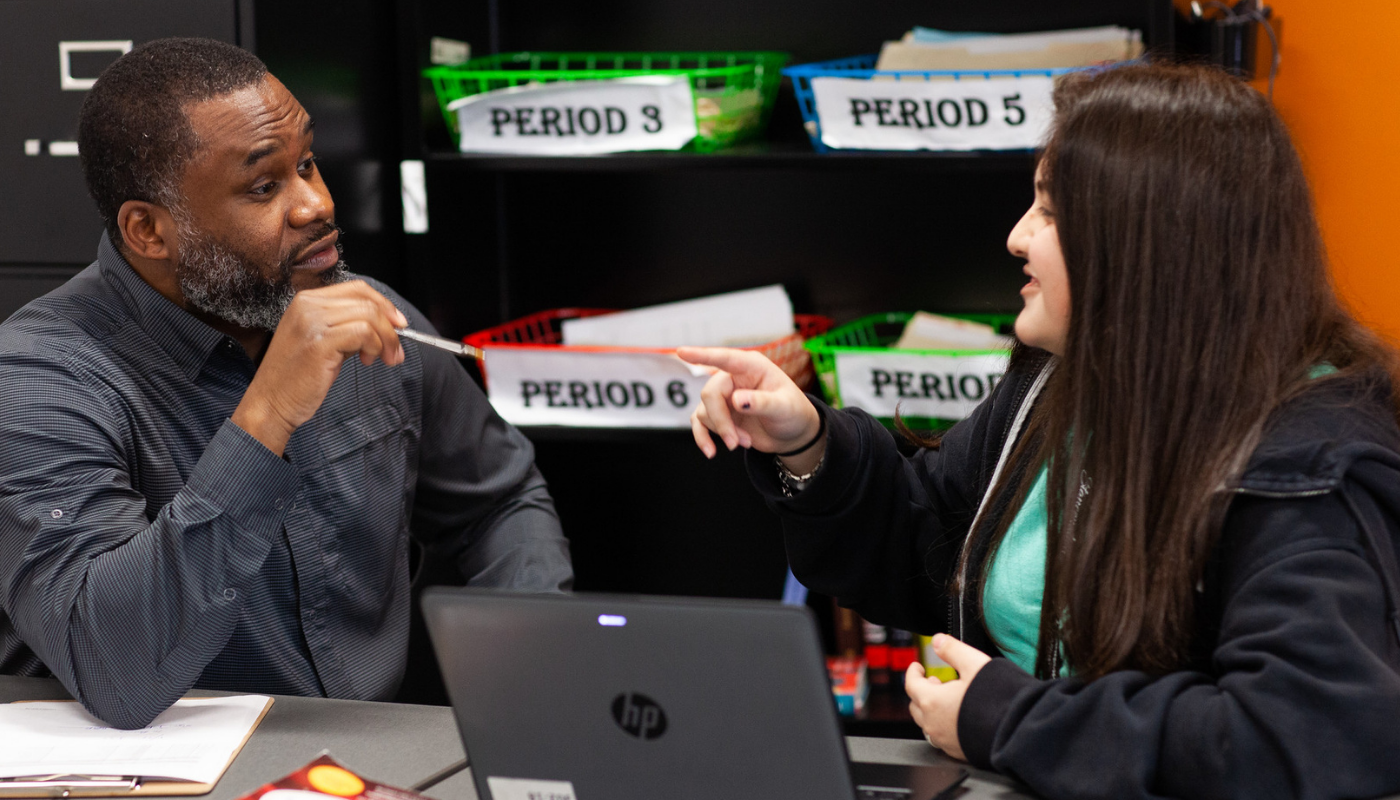
This is one of a four-part series on the research that supports and drives the Summit Learning program. The series focuses on Data-Driven Differentiation, Feedback, Student Motivation, and Mentoring.
Every student in the Summit Learning program is assigned a mentor—a trusted teacher or faculty member who spends dedicated time each week helping to guide them through the school year.
When the student and mentor begin their meetings, the focus of their weekly check-ins is on building a strong connection between the two of them. As the mentoring relationship evolves, their conversations often include the student’s goals, struggles, and overall progress in school and in life.
The mentoring component of the Summit Learning program aims to deepen students’ sense of belonging, while also fostering student ownership of learning, independence, and self-awareness. Educators have long been using mentoring as a strategy for student success, but our program adds research-based strategies to enhance the mentor-mentee relationship.
The Journal of Youth and Adolescence’s research on mentoring — Non-Specific versus Targeted Approaches to Youth Mentoring: A Follow-up Meta-analysis — suggests that programs that employ specific and targeted approaches have more positive outcomes for students.
The Summit Learning mentoring component reflects the core findings of this research in a number of ways. Our model does not rely on a non-specific, friendship-driven approach. While connection, trust, and relationship-building are indeed essential, they are not the sole focus. Instead, our mentoring model also emphasizes targeted goal-setting, accountability, support, and future-focused thinking.
Let’s take a closer look at how mentoring is used by both mentors and mentees within the Summit Learning platform.
Figure 9: Student Check-In Preparation
Our in-platform experience for mentoring demonstrates the commitment to a focused, substantive approach. The mentors and their students both have space to document their reflections, list goals, and track progress toward achieving those goals. The mentoring conversations revolve around goals, Habits of Success (such as executive function and agency), and longer-term dreams the student has for their life and career outside of school. More specifically, as seen in Figure 9, students respond to targeted prompts about goals in advance of their session in order to help get the most out of their mentoring time.
Figure 10: Mentor Data Dashboard
Mentors have valuable information and data available to help them to prepare for their mentoring sessions. They can review what their mentees have previously written and gain insight into their academic progress. This helps mentors ask relevant, timely questions about academics in addition to the questions about a student’s life outside of school.
Figure 10 shows what mentors see in their dashboard in the platform. By letting mentors know where students are thriving and where they are struggling, the tool helps lead to more targeted conversations during mentoring sessions.
Figure 11: Mentor Agendas
Mentors are also able to receive suggested guidance for how they might kick off and engage their students during the next mentoring session. Figure 11 shows suggested prompts that mentors can use to guide their conversations and narrow the focus of the topics. This helps take it beyond the “friendship model” of mentoring and leads to a session that meets the needs of each student.
The mentoring component of our program encourages positive relationships between a student and a caring adult through a targeted, specific approach that is supported by research.

